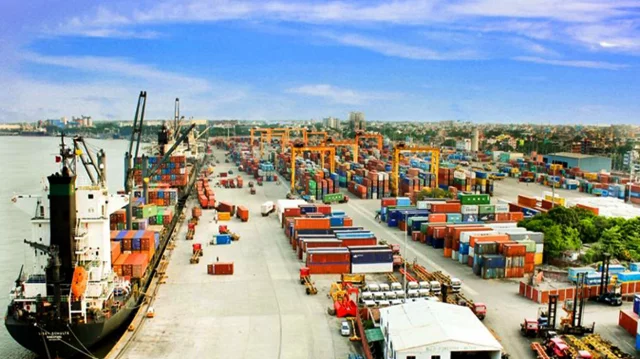search the site
Ctg port hikes container storage fees fourfold to ease congestion

The Chattogram Port Authority (CPA) has quadrupled container storage fees in an effort to reduce congestion and curb the unauthorised stockpiling of imported goods.
Under the new policy, importers must now pay between $24 and $96 per day for a 20-foot container and between $48 and $192 per day for a 40-foot container if they exceed the four-day grace period.
Earlier, these charges ranged from $6 to $24 and $12 to $48 per day, respectively. The revised rates took effect on Monday, following a 25-day notice period.
The move comes amid growing concerns that some importers are using the port as a makeshift warehouse, delaying the clearance of goods to manipulate market prices.
Last week, the CPA also ordered all lighter vessels to leave the port within 72 hours of loading to prevent their use as floating storage facilities.
Consumer rights groups have welcomed the decision, stating that it will deter businesses from hoarding goods at the port.
But business leaders, particularly in the RMG sector, have expressed concerns, arguing that most of the containers in the yard contain raw materials for garment production. They warn that the increased fees could raise production costs.
Congestion worsens
According to CPA officials, a large volume of imported goods has been stored in containers within the port, allegedly in anticipation of price hikes ahead of Ramadan.
As of Monday, approximately 29,220 TEUs (twenty-foot equivalent units) of containers were inside the port, many of them filled with various commodities. Alongside these stockpiled goods, numerous containers carrying raw materials for industries have also been left uncleared, disrupting the port’s normal productivity.
Reports suggest that some importers are delaying clearance to manipulate market prices. In response, authorities have conducted market inspections and held meetings with business leaders, but unless these goods enter the supply chain, the market situation is unlikely to improve.
CPA Secretary Mohammad Omar Faruque said, “Importers can avoid these higher fees by clearing their goods on time. We want importers to release their goods quickly. This will benefit everyone.”
‘Floating ships are used as warehouses’
The CPA secretary added, “The importers were notified about this increase 25 days ago, and the new fees took effect on Monday. We do not want to allow anyone to use the port facility as a warehouse where importers can hoard goods to manipulate the market during Ramadan.”
SM Nazer Hossain, vice president of the Consumer Association of Bangladesh, said importers have been using the port and floating ships in the harbour as warehouses to hoard goods and increase market prices.
Welcoming the CPA’s move, he added, “The decision to impose fourfold container storage fees will force importers to clear their goods sooner, which will increase supply in the market.”
Concerns over RMG sector
Belayet Hossain, a former director of the BGMEA, said consumer goods are primarily imported through bulk carriers and unloaded at the outer anchorage onto lighter vessels.
“Most of the import containers in the port contain raw materials for the garment industry, with very few holding consumer goods. As a result, the RMG sector will be under pressure, as the increased storage fees will push production costs higher,” he added.
source : tbsnews


















